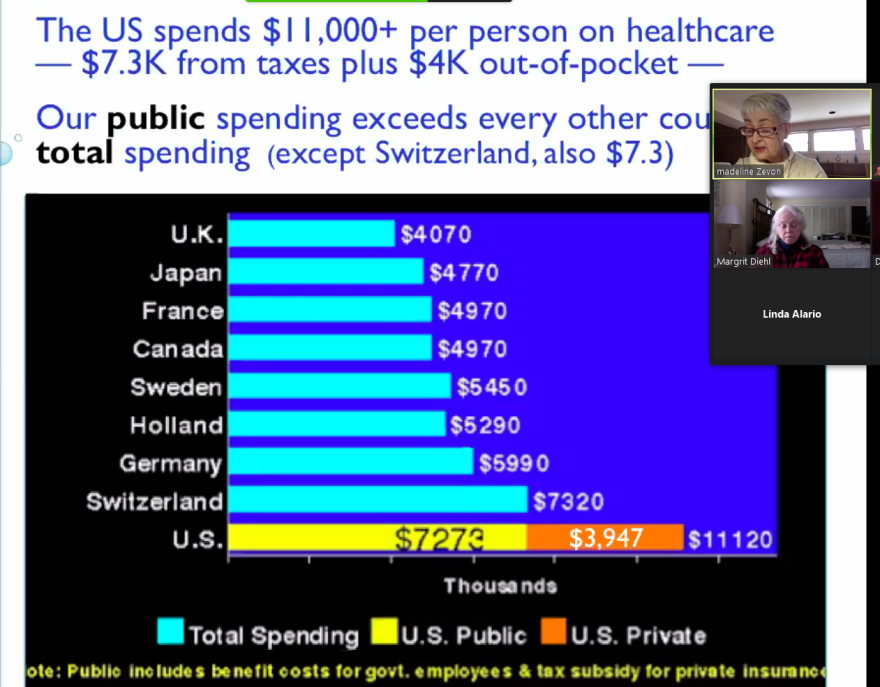The influential, non-partisan League of Women Voters of New York is getting behind universal health care. The decision to update their decades-old position comes after more than a year of research and discussions among the chapters, and growing momentum for a publicly funded system.
Judy Esterquest chairs a Long Island chapter Health Care Committee, and says people trust them to advocate in their best interest.
"Health care is non-partisan. Everybody has a body regardless of their politics. The 10 million people who are underinsured, they are across the political spectrum. Everybody worries about family members who can't afford prescriptions, aren't seeing doctors."
The League presented data to back up its position, including fewer employers offering health care coverage to workers, shifting more costs to workers, lower life expectancy despite high health care spending, and growing disparities in care among demographic groups. Ursula Rozum of Syracuse is with the Campaign for New York Health, a group that has pushed hard for New York to pass universal health care. She says the New York Health Act, for example, would ultimately reduce costs for local government.

"Onondaga County would be saving $164 million on expenses on public employee health care costs with the New York Health Act because we'd no longer be buying private insurance from for-profit insurance companies."
"So you can think about what that would do to your county taxes," Judy Esterquest chimed in.
She adds that the county’s share of Medicaid, one of its biggest taxpayer-funded expenses, would no longer apply under a universal health care plan. She says both houses of the state legislature are likely to pass the New York Health Act, but they’re not sure if Governor Cuomo will sign it.

"So, we're close. Part of the reason we know we're close is because the number of dollars being spent against it by some very large, dark money PACS, is very, very high. You will hear fear and uncertainty and doubt across the airwaves, across local newspapers."
Esterquest says naturally, private health insurers face the most existential threat from universal health care. But so do many hospitals, pharmaceutical companies, and billing firms, which have benefitted from a lucrative, for-profit health care industry. On the other hand, the League has learned that most family physicians support a single payer system, as do most unions.



